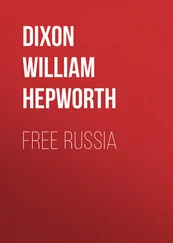Nikolai Nekrasov - Who Can Be Happy and Free in Russia?
Здесь есть возможность читать онлайн «Nikolai Nekrasov - Who Can Be Happy and Free in Russia?» весь текст электронной книги совершенно бесплатно (целиком полную версию без сокращений). В некоторых случаях можно слушать аудио, скачать через торрент в формате fb2 и присутствует краткое содержание. Год выпуска: 2005, Жанр: Поэзия, на английском языке. Описание произведения, (предисловие) а так же отзывы посетителей доступны на портале библиотеки ЛибКат.
- Название:Who Can Be Happy and Free in Russia?
- Автор:
- Жанр:
- Год:2005
- ISBN:нет данных
- Рейтинг книги:3 / 5. Голосов: 1
-
Избранное:Добавить в избранное
- Отзывы:
-
Ваша оценка:
- 60
- 1
- 2
- 3
- 4
- 5
Who Can Be Happy and Free in Russia?: краткое содержание, описание и аннотация
Предлагаем к чтению аннотацию, описание, краткое содержание или предисловие (зависит от того, что написал сам автор книги «Who Can Be Happy and Free in Russia?»). Если вы не нашли необходимую информацию о книге — напишите в комментариях, мы постараемся отыскать её.
Who Can Be Happy and Free in Russia? — читать онлайн бесплатно полную книгу (весь текст) целиком
Ниже представлен текст книги, разбитый по страницам. Система сохранения места последней прочитанной страницы, позволяет с удобством читать онлайн бесплатно книгу «Who Can Be Happy and Free in Russia?», без необходимости каждый раз заново искать на чём Вы остановились. Поставьте закладку, и сможете в любой момент перейти на страницу, на которой закончили чтение.
Интервал:
Закладка:
The thunder pealed forth
And the windows were shaken; 470
I started! Savyéli
Drew nearer and touched me,
And led me to stand
By the little white coffin:
"'Now pray that the Lord
May have placed little Djóma
Among the bright ranks
Of His angels,' he whispered;
A candle he placed
In my hand…. And I knelt there 480
The whole of the night
Till the pale dawn of daybreak:
The grandfather stood
Beside Djómushka's coffin
And read from the book
In a measured low voice…."
CHAPTER V
THE SHE-WOLF
"'Tis twenty years now
Since my Djóma was taken,
Was carried to sleep
'Neath his little grass blanket;
And still my heart bleeds,
And I pray for him always,
No apple till Spassa [53] The Saviour's day.
I touch with my lips….
"For long I lay ill,
Not a word did I utter, 10
My eyes could not suffer
The old man, Savyéli.
No work did I do,
And my Father-in-law thought
To give me a lesson
And took down the horse-reins;
I bowed to his feet,
And cried—'Kill me! Oh, kill me!
I pray for the end!'
He hung the reins up, then. 20
I lived day and night
On the grave of my Djóma,
I dusted it clean
With a soft little napkin
That grass might grow green,
And I prayed for my lost one.
I yearned for my parents:
'Oh, you have forgotten,
Forgotten your daughter!'
"'We have not forgotten 30
Our poor little daughter,
But is it worth while, say,
To wear the grey horse out
By such a long journey
To learn about your woes,
To tell you of ours?
Since long, little daughter,
Would father and mother
Have journeyed to see you,
But ever the thought rose: 40
She'll weep at our coming,
She'll shriek when we leave!'
"In winter came Philip,
Our sorrow together
We shared, and together
We fought with our grief
In the grandfather's hut."
"The grandfather died, then?"
"Oh, no, in his cottage
For seven whole days 50
He lay still without speaking,
And then he got up
And he went to the forest;
And there old Savyéli
So wept and lamented,
The woods were set throbbing.
In autumn he left us
And went as a pilgrim
On foot to do penance
At some distant convent…. 60
"I went with my husband
To visit my parents,
And then began working
Again. Three years followed,
Each week like the other,
As twin to twin brother,
And each year a child.
There was no time for thinking
And no time for grieving;
Praise God if you have time 70
For getting your work done
And crossing your forehead.
You eat—when there's something
Left over at table,
When elders have eaten,
When children have eaten;
You sleep—when you're ill….
"In the fourth year came sorrow
Again; for when sorrow
Once lightens upon you 80
To death he pursues you;
He circles before you—
A bright shining falcon;
He hovers behind you—
An ugly black raven;
He flies in advance—
But he will not forsake you;
He lingers behind—
But he will not forget….
"I lost my dear parents. 90
The dark nights alone knew
The grief of the orphan;
No need is there, brothers,
To tell you about it.
With tears did I water
The grave of my baby.
From far once I noticed
A wooden cross standing
Erect at its head,
And a little gilt icon; 100
A figure is kneeling
Before it—'Savyéli!
From whence have you come?'
"'I have come from Pesótchna.
I've prayed for the soul
Of our dear little Djóma;
I've prayed for the peasants
Of Russia…. Matróna,
Once more do I pray—
Oh, Matróna … Matróna…. 110
I pray that the heart
Of the mother, at last,
May be softened towards me….
Forgive me, Matróna!'
"'Oh, long, long ago
I forgave you, Savyéli.'
"'Then look at me now
As in old times, Matróna!'
"I looked as of old.
Then up rose Savyéli, 120
And gazed in my eyes;
He was trying to straighten
His stiffened old back;
Like the snow was his hair now.
I kissed the old man,
And my new grief I told him;
For long we sat weeping
And mourning together.
He did not live long
After that. In the autumn 130
A deep wound appeared
In his neck, and he sickened.
He died very hard.
For a hundred days, fully,
No food passed his lips;
To the bone he was shrunken.
He laughed at himself:
'Tell me, truly, Matróna,
Now am I not like
A Korójin mosquito?' 140
"At times the old man
Would be gentle and patient;
At times he was angry
And nothing would please him;
He frightened us all
By his outbursts of fury:
'Eh, plough not, and sow not,
You downtrodden peasants!
You women, sit spinning
And weaving no longer! 150
However you struggle,
You fools, you must perish!
You will not escape
What by fate has been written!
Three roads are spread out
For the peasant to follow—
They lead to the tavern,
The mines, and the prison!
Three nooses are hung
For the women of Russia: 160
The one is of white silk,
The second of red silk,
The third is of black silk—
Choose that which you please!'
And Grandfather laughed
In a manner which caused us
To tremble with fear
And draw nearer together….
He died in the night,
And we did as he asked us: 170
We laid him to rest
In the grave beside Djóma.
The Grandfather lived
To a hundred and seven….
"Four years passed away then,
The one like the other,
And I was submissive,
The slave of the household,
For Mother-in-law
And her husband the drunkard, 180
For Sister-in-law
By all suitors rejected.
I'd draw off their boots—
Only,—touch not my children!
For them I stood firm
Like a rock. Once it happened
A pilgrim arrived
At our village—a holy
And pious-tongued woman;
She spoke to the people 190
Of how to please God
And of how to reach Heaven.
She said that on fast-days
No woman should offer
The breast to her child.
The women obeyed her:
On Wednesdays and Fridays
The village was filled
By the wailing of babies;
And many a mother 200
Sat bitterly weeping
To hear her child cry
For its food—full of pity,
But fearing God's anger.
Интервал:
Закладка:
Похожие книги на «Who Can Be Happy and Free in Russia?»
Представляем Вашему вниманию похожие книги на «Who Can Be Happy and Free in Russia?» списком для выбора. Мы отобрали схожую по названию и смыслу литературу в надежде предоставить читателям больше вариантов отыскать новые, интересные, ещё непрочитанные произведения.
Обсуждение, отзывы о книге «Who Can Be Happy and Free in Russia?» и просто собственные мнения читателей. Оставьте ваши комментарии, напишите, что Вы думаете о произведении, его смысле или главных героях. Укажите что конкретно понравилось, а что нет, и почему Вы так считаете.











